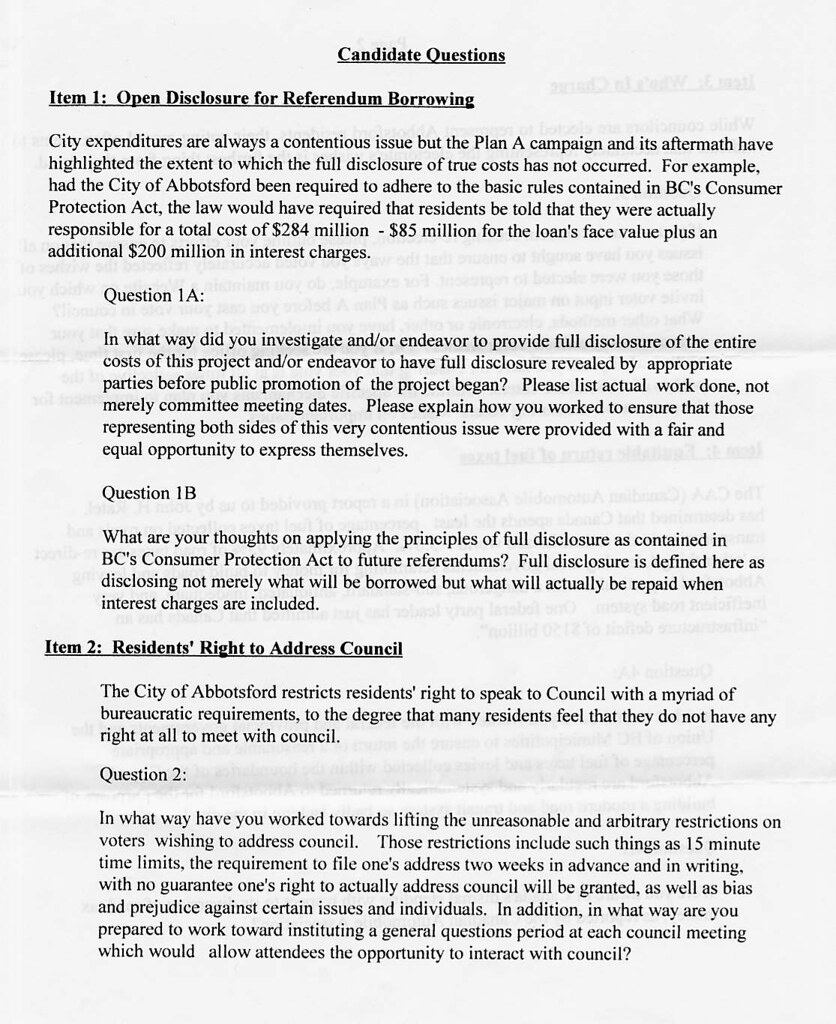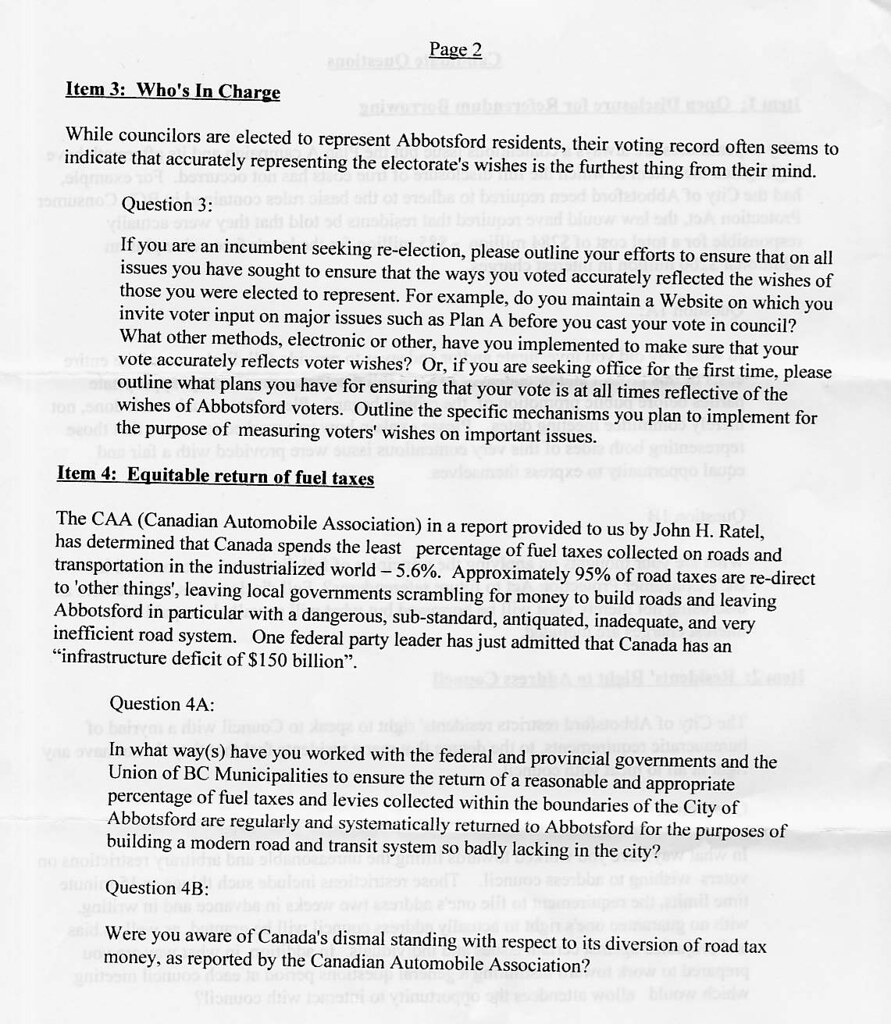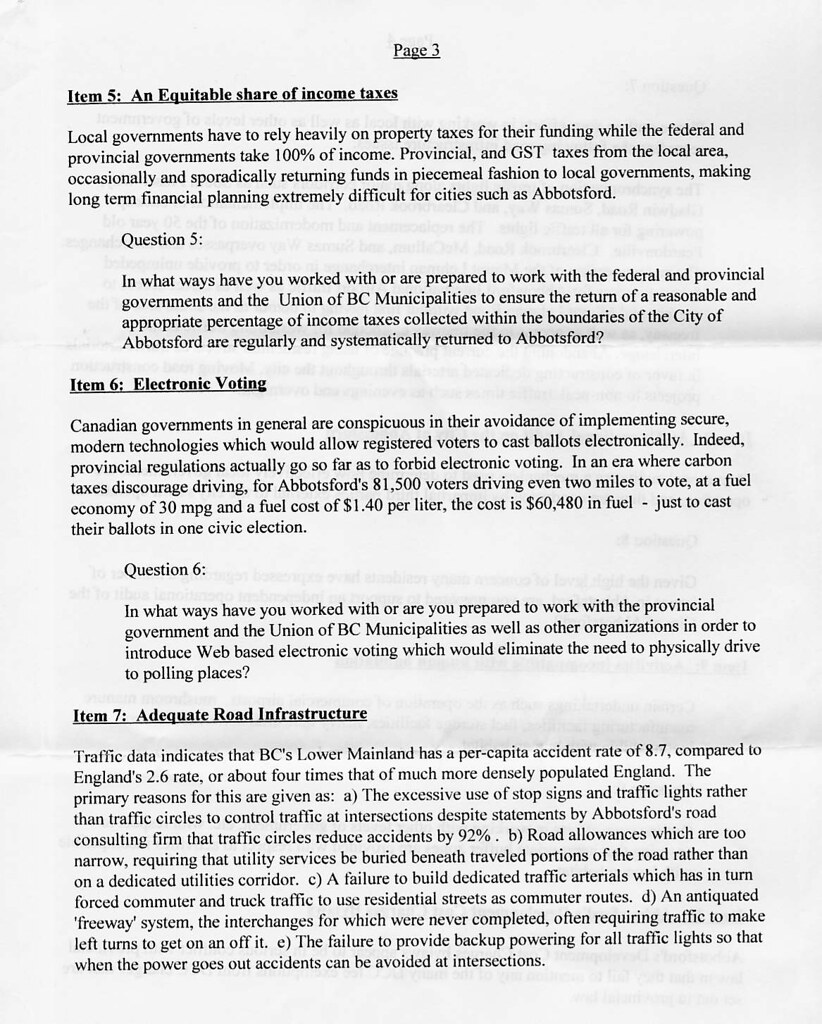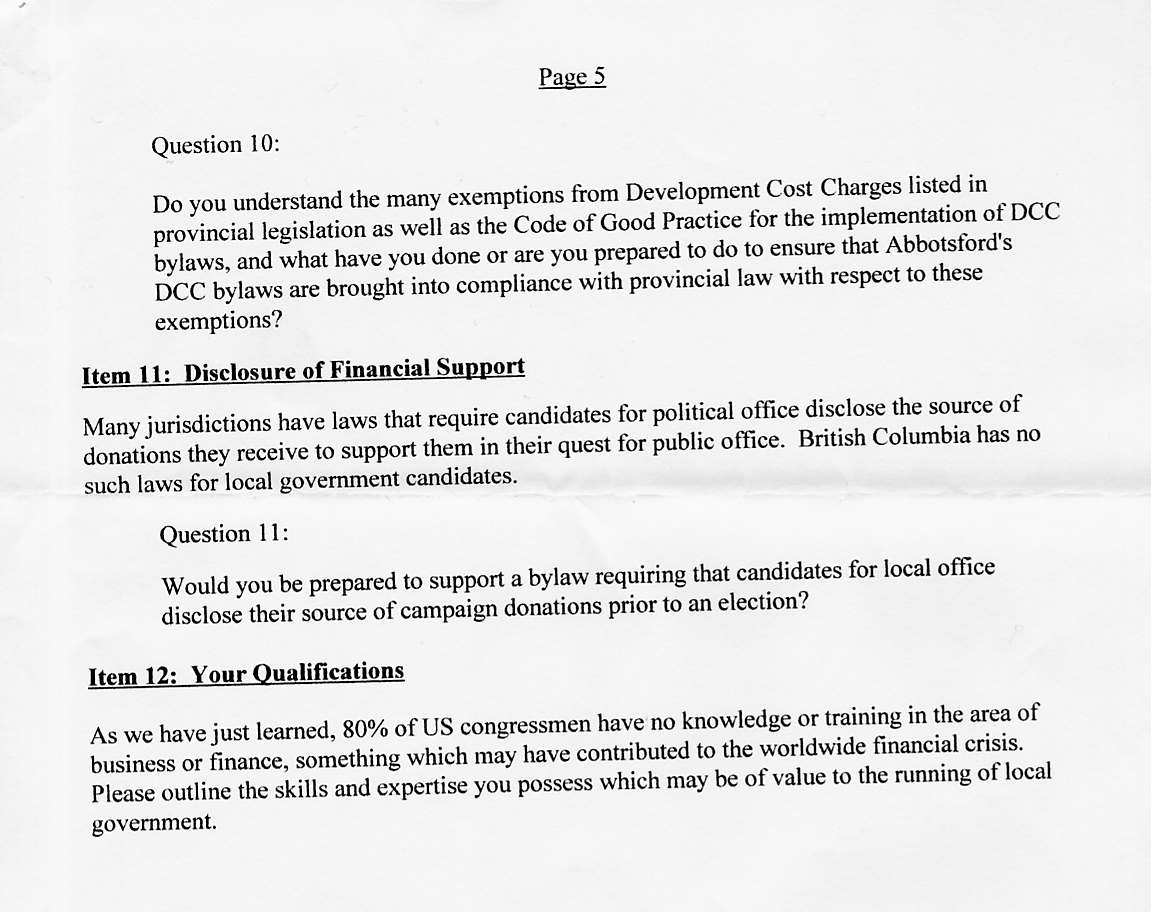A frightening level of ignorance (and you can take ignorance both ways for meaning) was demonstrated at Monday night’s all candidates meeting at UFV about the social problems of homelessness, addiction, mental health, recovery and wellness, poverty, affordable housing and to a degree crime.
“We cannot build 50 units of housing in one place, we have to break them up into smaller units, spread them all out and check to make sure the police can handle, have plans to handle, all the extra crime that will occur because of these houses/people being located in the area.”
Statements along these lines made clear the failure of those making these and similar statements to have become informed on the reality and extent of the affordable housing crisis and other social problems in our city, displaying a woeful lack of basic awareness and knowledge on these issues.
The statements also demonstrate an unacceptable level of blind prejudice.
Admittedly my reaction is influenced by the insult given to myself and many others I know in those sweeping, ignorant statements.
Let me say again that I have been in and may find myself again, given my precarious one financial hiccup from homelessness situation, in need of this type of affordable, supportive housing. Supportive since falling out of your home is a traumatic experience.
I am also dismayed at the willingness to make judgments and sweeping demeaning, prejudicial statements concerning housing when nobody knows what kind of housing or tenants we are speaking of. Bad enough to fail to inform yourself on what are major issues facing the city, but to be unable to recognize a situation where there is no information at this time to make a decision on….
I have been involved in housing and other social issues in this city for years; indeed I have personal experience with the affordable housing issues having been scrambling at this time last year to find safe, healthy affordable housing.
With my experience and expertise I have no clue what type of housing we are talking about building with the BC Housing money or what organization (or organizations) will be involved in building and running the housing.
We won’t know until proposals are submitted to the city about what will be built and who will be the tenants.
I believe that as a member of city council I should know what I am making a decision about and what the facts are before I make a judgment and decide what course of action to pursue.
I just find that decisions I make tend to work out much better when I am informed about the issue or matter at hand and actually know what I am talking about.
The only part of this matter on which we can speak is about the monies that are or will be attached to each of the projects for supportive services.
While I am far healthier mentally and as a person than I have ever been in my life and so cannot regret the journey that brought me to this state of health and wellness I faced far more of a struggle to achieve that wellness than I needed to or should have faced. Indeed I admit that luck was a factor in my journey to balance and wellness. Luck should not be the factor that determines recovery or whether you have a high quality of life.
Far to many people are going to suffer because the support they need to prosper and be housed does not exist. The BC Housing buildings come with funding for this needed support.
The type of support needed is the same in a 50 unit building or a 5 unit building. The difference is that building 10 smaller 5 unit buildings will result in a cost 10 times as much to provide the needed level of support services for each building. Where do they suggest we get the extra $5,850,000 per year for the next 30 years?
Then there was the mayoralty candidate who stated they were against building any more housing for the homeless, that we already had too much homeless housing.
This will certainly be news to the hundreds of people who are currently homeless on the streets of Abbotsford. I am sure they will be as surprised as I was to hear that rather than a shortage of safe, healthy affordable housing Abbotsford has to much of that type of housing.
I am sure this surplus will be a relief to the increasing numbers of seniors, families, women and children finding themselves homeless because they cannot afford the cost of housing, of living in Abbotsford.
Or was the real meaning of the statement about no more housing that they wanted to ignore these people and leave them suffering homelessness?
We all know how well ignoring these social issues and problems worked out to this point.
As much as we all may want the statement made by one of the candidates that “these are complex problems but the solution is simple” to be true, it is not. The reason that these problems have grow year after year is that governments were searching for a simple solution that did not exist, rather than facing reality and doing what was necessary to begin addressing and reducing these social problems and their related societal costs (e.g. property crime).
The only thing that chasing a nonexistent simple solution will do is waste time and money, while allowing these social ills to continue to grow and worsen.





